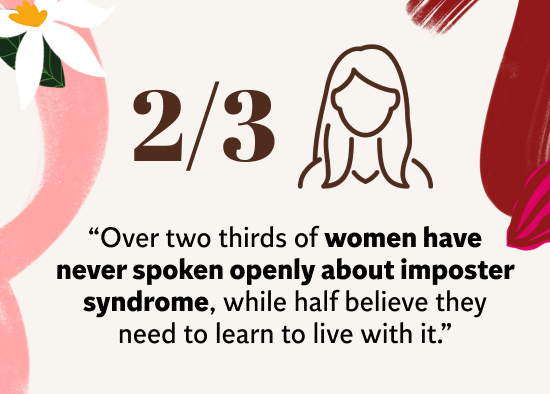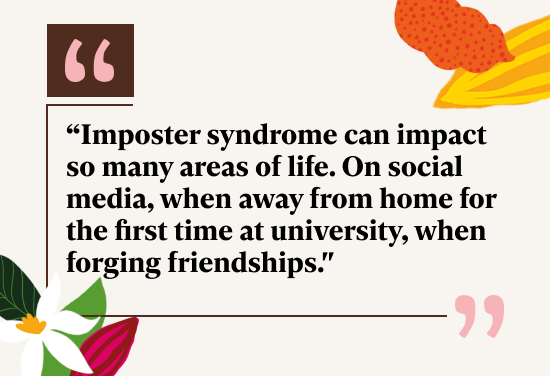
AJ Odudu is the type of presenter who makes her audience feel like they are sitting opposite her in the pub rather than in front of a TV screen. The ultra successful TV star, who is due to host the reboot of seminal reality show Big Brother this Autumn, has a relatability, warmth and natural charm that has seen her career soar from her beginnings at BBC Switch, via The Voice UK and Big Brother’s Bit On the Side, and a show-stealing stint on Strictly (until a last-minute injury robbed her of a shot at the Glitter Ball).
Yet despite having a thriving career in arguably one of the most outgoing, extrovert fields out there, AJ isn’t immune from the creeping doubts and anxieties many of us experience on a daily basis – with the presenter revealing she regularly wrestles with imposter syndrome and doesn’t always feel as assured on-camera as she might seem.
“Part of my job as a TV presenter is to appear confident, but there are so many times throughout my career where that has not been the case,” AJ explains. “There are times when I’m hosting the show and I get so nervous and think ‘I can’t do it’ – then all of a sudden it all comes out and I’m able to do it. But it doesn’t stop those moments of self-doubt and it doesn’t stop me questioning ‘Do I deserve to be here?’”
In terms of finding ways to manage these feelings, AJ notes that it’s “really important to celebrate all of the successes” regardless of “however big and small” they might appear. “We’re constantly in this state of moving forward and onto the next and we need to stop and take stock of the here and now,” she adds. She also urges people to “be kind” to themselves and not strive towards the unattainable goal of perfection. “We all need to accept that perfection doesn’t exist,” AJ reflects. “We all know it. I’m not perfect, no one is.”
A common problem

The latest research shows AJ is far from alone. According to a survey of 4000 people conducted by confectionary brand Galaxy, over half of British women (53 per cent) experience imposter syndrome every single day. Of these women, almost three quarters (72 per cent) are affected in the workplace, with 29 per cent impacted in educational settings.
Imposter syndrome is described as a feeling of inadequacy that persists despite evidence of success. This sensation of chronic self-doubt can feel both undermining and isolating, with individuals experiencing feelings of fraudulence, and over a prolonged period can act as a significant contributor to burnout. Troublingly, the survey bears out these damaging consequences, with one in seven women who have struggled with imposter syndrome leaving a job as a direct result.
The condition is also impacting women’s personal lives: affecting their friendships (20 per cent), romantic relationships (24 per cent) and parenting (18 per cent) while 16 per cent of women have experienced it at the gym. Triggers include lack of confidence, comparing themselves to others, perfectionism, lack of mental support and the pressure to have it all.
Perhaps unsurprisingly, a huge number – 79 per cent of the 2000 women surveyed – believe social media has had a hand in the rise of imposter syndrome. The research also revealed that symptoms of imposter syndrome start on average at 23 years old, with a shocking 62 per cent of women saying they have rarely experienced true confidence in their lives.
While men do experience imposter syndrome, they are less likely to be affected and across fewer areas of their lives, with the majority of men (63 per cent) saying they have only experienced it in the workplace and over half (54 per cent) saying they have never felt it at all. Men are also more likely to try to deal with feelings of imposter syndrome (46 per cent) than women (30 per cent). By contrast, over two thirds of women surveyed said that they have never spoken openly about their experiences, while half said they believe they just need to learn to live with it.
As Sonia Devlin, 27, from London explains: “I feel like there’s a real divide between young women and young men. In my experience young women feel that they need to do well in the role and really prove themselves before they ask for a salary increase, whereas young men that I know just dive straight in and ask for a pay rise. Often then young women end up burning out because they take on too much. It’s a vicious cycle.”
Finding solutions

In a bid to raise awareness, destigmatize the issue and help young women who are struggling, AJ has teamed up with Galaxy and Young Women’s Trust, a charity campaigning for an equal world of work for young women, to launch their series How to Thrive, exploring causes and resolutions around imposter syndrome. The initiative features candid interviews with inspirational women opening up about their own struggles with imposter syndrome and providing practical guidance and solutions.
“Imposter syndrome can be crippling and impact so many areas of everyday life,” AJ explains. “It can consume you while on social media, it can take over when away from home for the first time at university, it can also have an impact when just forging friendships. As someone who has faced it regularly in the past, it’s been a pleasure working on this content series with Galaxy.”
The long-term partnership will see Galaxy supporting Young Women’s Trust’s vital work helping young women, providing free coaching and advice to help them navigate life and career issues and empower them financially.
“Young women face many challenges reaching their potential, progressing in life and earning what they should,” Claire Reindorp, CEO of Young Women’s Trust, explains. “They’re more likely to be in lower-paid jobs and sectors of the economy and more likely to get stuck there. At a time in life when young women should be growing and learning, they’re instead too often trapped in a struggle just to get by."
Holly Jevons, 27, from London says that losing her job during the pandemic triggered her imposter syndrome. “I knew I didn’t lose my job because I lacked the skills or talent. But that was all my inner voice kept telling me. It made me doubt my abilities and, without my motivation to succeed and the support of those around me, it would have been really hard. One of the best tips I have for dealing with imposter syndrome is to talk to others about it. As people say, a problem shared is a problem halved. But also I found this normalised it and made me realise everyone has the same feelings – even those you wouldn’t expect.”
Both Galaxy and Young Women’s Trust are passionate in their belief that when young women thrive, all of society benefits. The partnership forms part of Galaxy’s ‘Your Pleasure Has Promise Manifesto’, in which they pledge to help one million people, including women, their families and communities thrive by 2030. This includes Galaxy’s work with CARE International in cocoa-farming communities in Ghana and Cote D’Ivoire helping boost women’s financial literacy, entrepreneurial skills and economic equality.
Galaxy’s hope is that by supporting and empowering UK women to reach their potential, a virtuous cycle is created in which female empowerment at every level becomes the norm. “Our ambition for Galaxy is to empower young women to thrive, creating a ripple effect of women who then go to enable the next generation to thrive,” Victoria Gell, Galaxy Brand Director, explains. “From the work we do supporting women in our cocoa growing regions with education, finance support and entrepreneurship, to campaigns such as this, we want to help make a difference.”
Galaxy® is committed to help one million people, including women, their families and communities thrive by 2030 via its ‘Your Pleasure Has Promise’ manifesto and vital initiatives including the Women for Change programme in collaboration with CARE and their How to Thrive series in partnership with Young Women’s Trust. Click here to find out more







